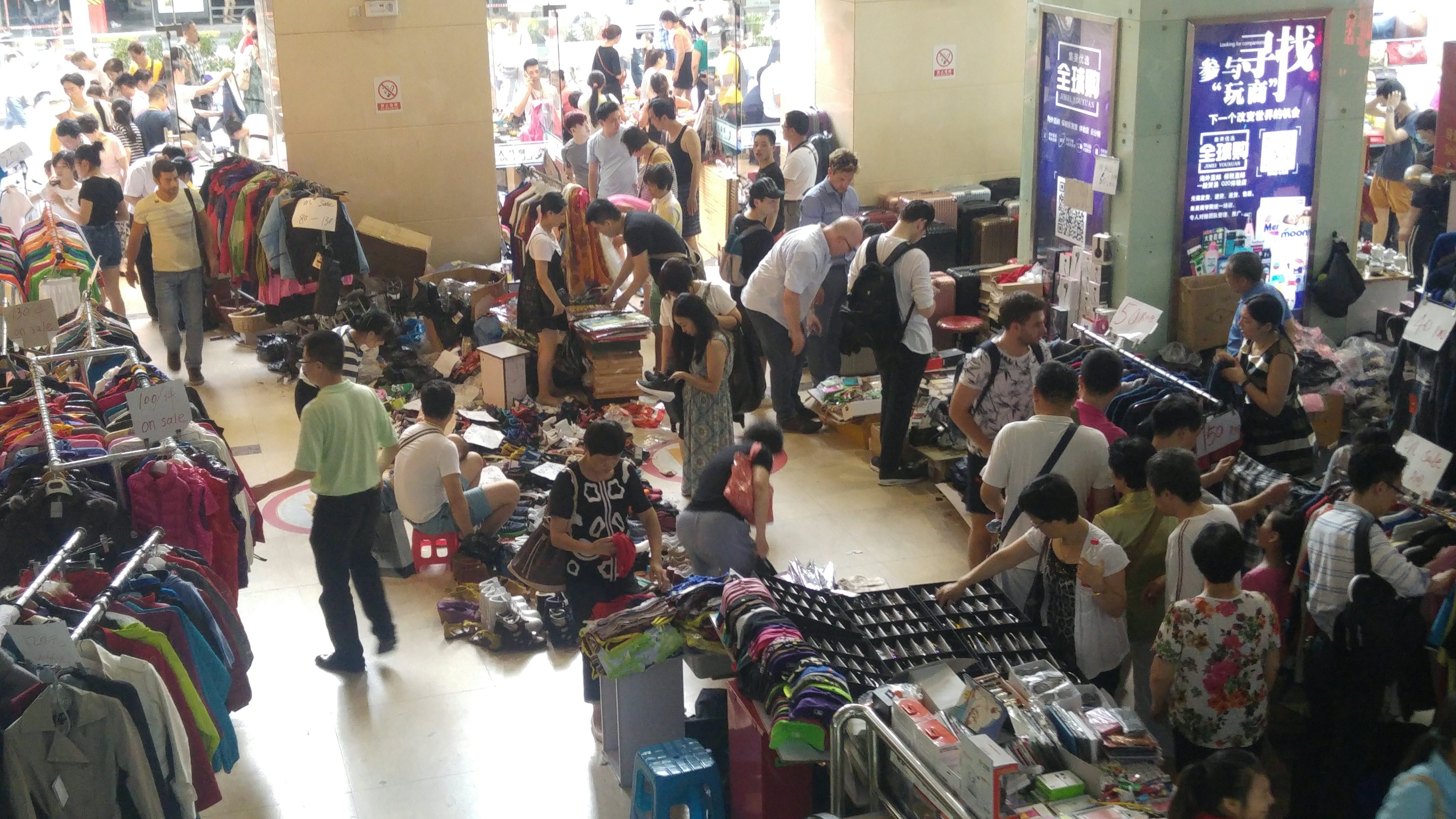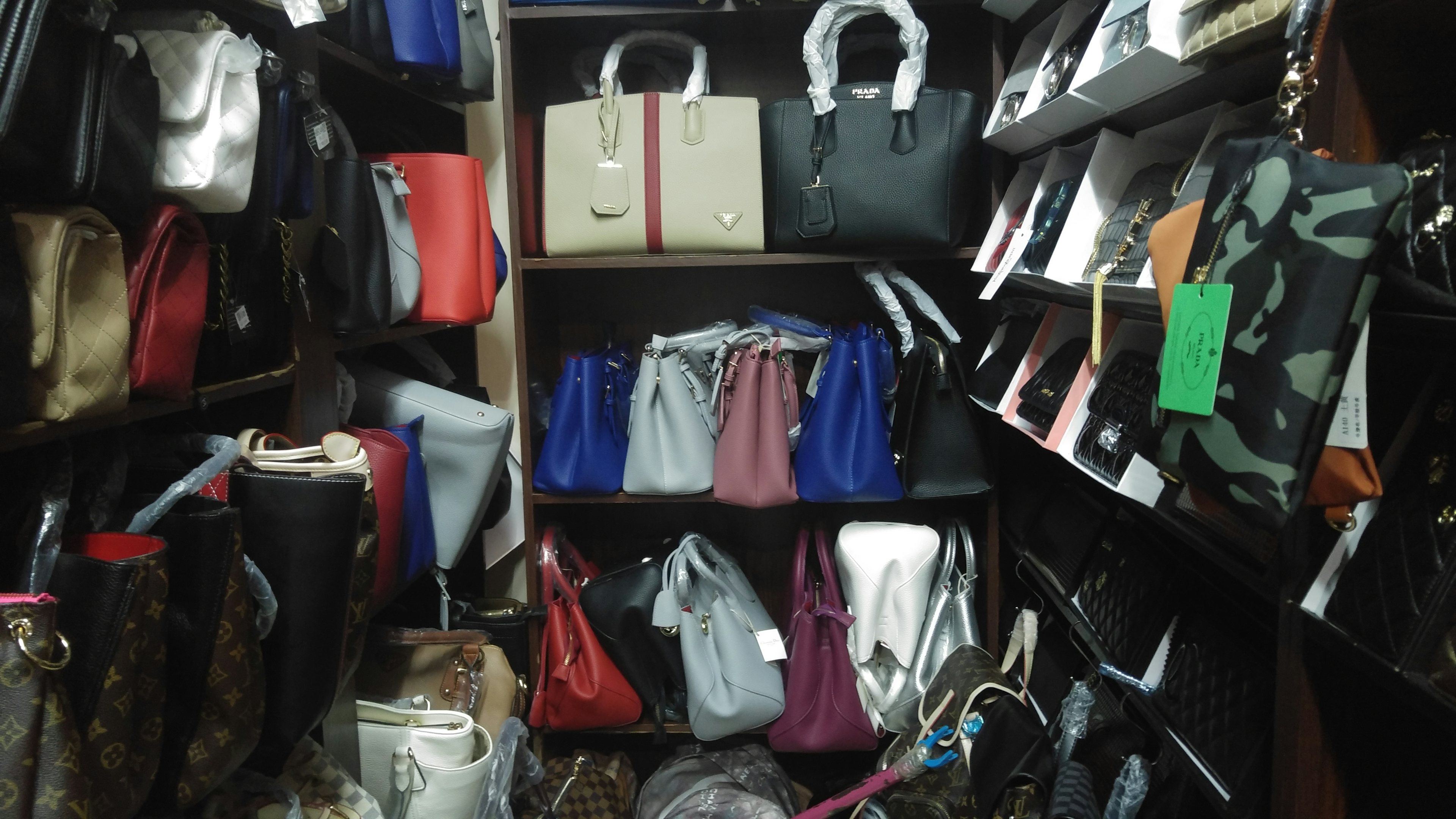Last May, multiple media outlets announced that the infamous Han City Fashion & Accessories Plaza on West Nanjing Road would be closing at the beginning of July.
Many tourists and locals come to Han City to shop for counterfeit bags, shoes, clothes, electronics, as well as a variety of other illegal items such as brass knuckles and mace. When the mall first opened, it earned the nickname “Taobao City” for the remarkable diversity of fake products a shopper could acquire there.
As of August 20, Han City has remained open. However, a large percentage of vendors have left and the third and fourth floors of the mall are now vacant.
Over the years, there was not much done about the illegal sales of fake designer goods at Han City. While police did patrol the markets, it is rumored that many of the guards at the mall took bribes from landlords and vendors, and frequent shoppers at the market claim to have witnessed vendors giving cash to guards.
In the past few months, the government of the city of Shanghai has changed its approach to this problem. In June, several stores, primarily eyewear vendors, were raided and over 10 people who worked at the market were put in jail. This tactic is a departure from other anti-counterfeit measures, where luxury brands and the government focused efforts on stopping online sales of fake goods.
However, it was not the city government that pushed for the shutdown, but rather the landlord of the mall itself. According to vendors, the mall changed management at the end of July and the new owners do not seem to support the current illegal inventory. Around the mall, there are several new notices and large posters banning the sale of counterfeits of major international brands, including Chanel, Gucci, and Prada. The suspicion, according to vendors in the mall, is that the new owners want to turn into a legal mall with real brands and charge higher rents.

With these new changes, approximately half of the vendors chose not to renew their leases and left their shops by July 1. Others had already put down deposits for July and August and were choosing to remain in their stores. Meanwhile, other vendors like Gary, who sells knock-off North Face backpacks on the third floor, confidently told shoppers that the mall “will never close, [it] always [stay] open.”
With no official shutdown date and a lot of misinformation, the rumored shutdown has had a counterintuitive effect, driving sales at the market. On June 30, the day before many vendors were set to vacate their storefronts, there were massive sales at Han City. Counterfeit Michael Kors and Longchamp bags were piled on the floor by the dozens, being sold for 40 RMB (US$6) each, and most electronics stores had slashed all their prices to 10 RMB. The market was busier than usual since both locals and tourists alike had rushed to snag final deals.
This is not the first time Shanghai has shut down a fake market. The Xiangyang Market in the former French Concession was the largest, most popular counterfeit market in Shanghai and the best spot to buy fake designer handbags. In 2006, the government shut the market down for good and the space turned into a luxury mall called iapm. However, the strategy to destroy supply sources doesn’t necessarily dampen demand, and Shanghai has a long way to go to stamp out the sales of fakes. When Xiangyang Market was shuttered, many vendors moved to other fake markets around the city, most notably to Han City.
It seems the same situation is happening in the wake of the announced closure of Han City. When interviewed, a few vendors said they would stop selling counterfeits, but a majority planned on moving on to the fake markets in Hongqiao and Pudong. One electronics vendor on the second floor said she was planning to move to the fake market underneath the Science and Technology Museum in Pudong because “there are more laowai [foreigners] there, and they always want to buy my Beats [headphones],” while the eyeglass vendors on the third floor were leaning toward moving to the glasses market in Zhabei.
While closing a fake market that is on the same road as most luxury stores in Shanghai is a victory for both the government and retailers, it is still unclear what the long-term effects of the shutdown will be on China’s rampant counterfeit goods market, especially as it has moved online.
